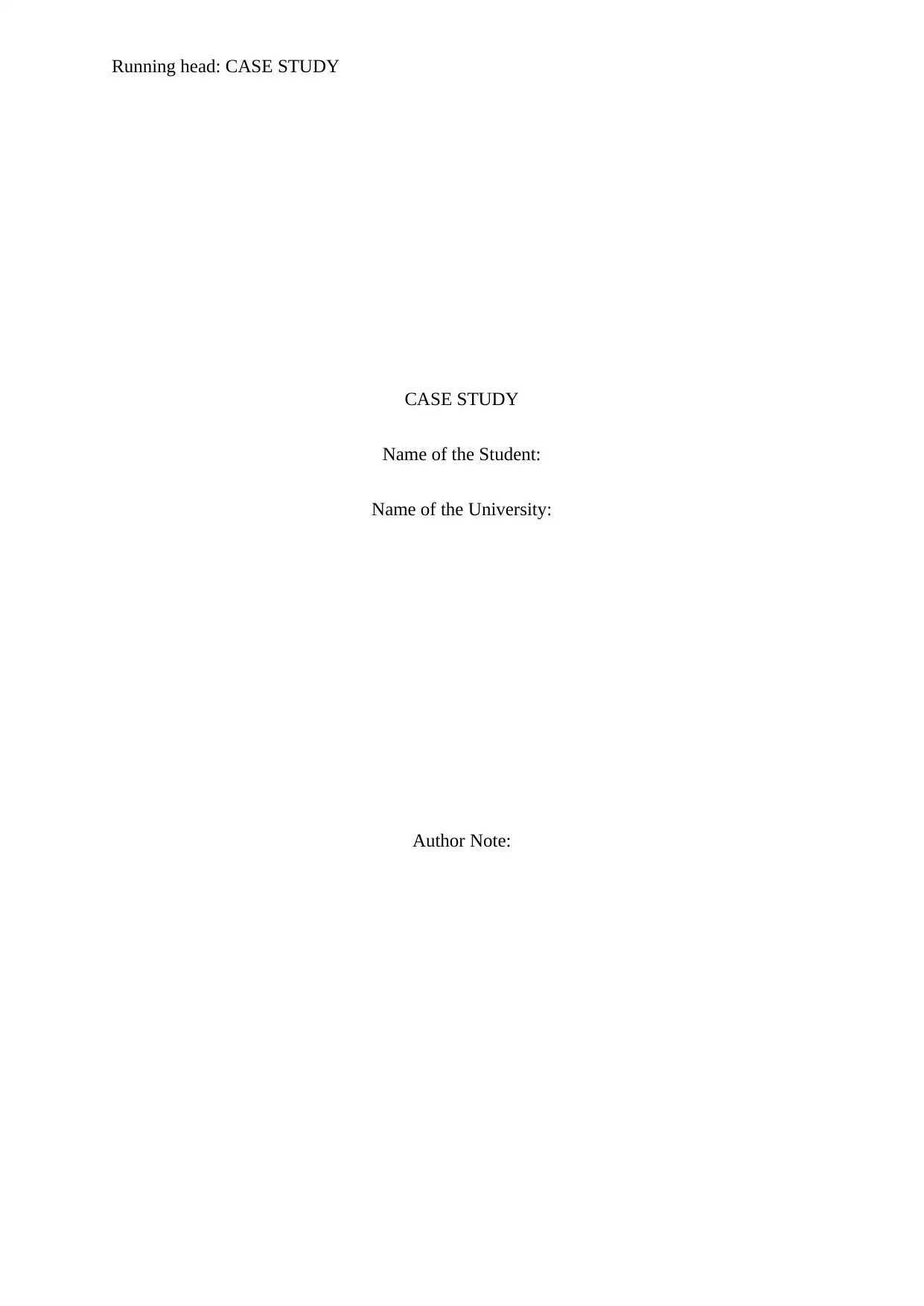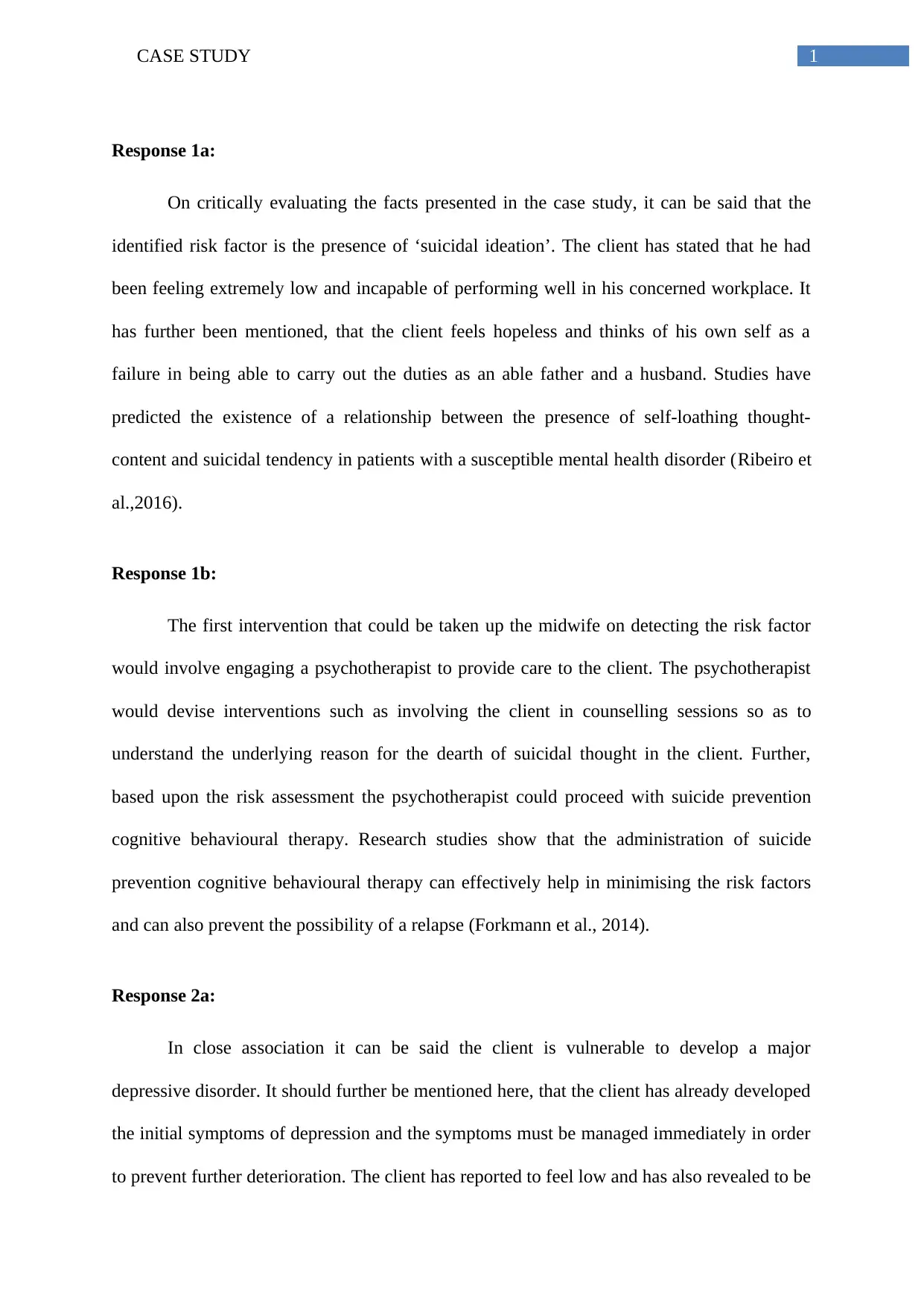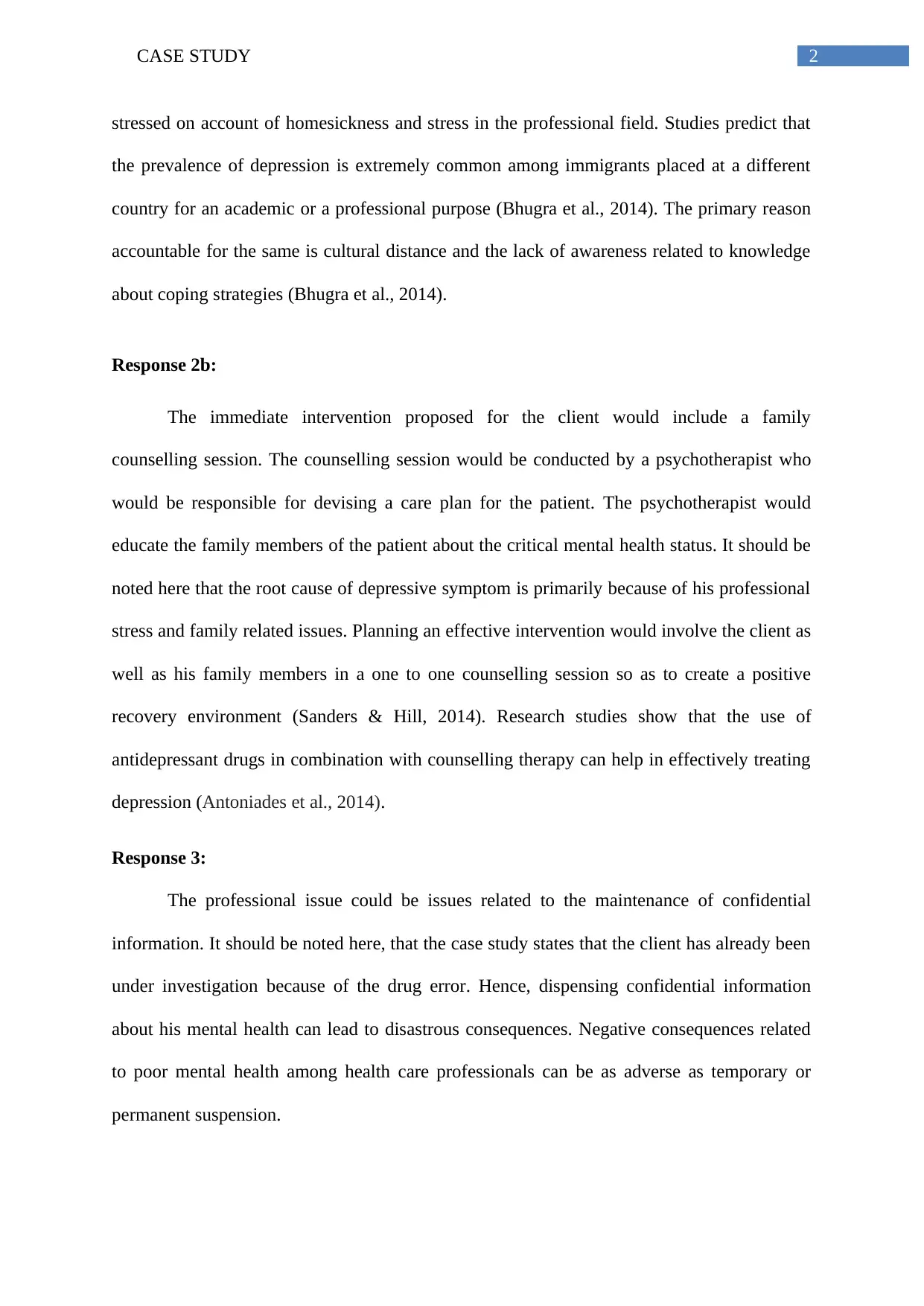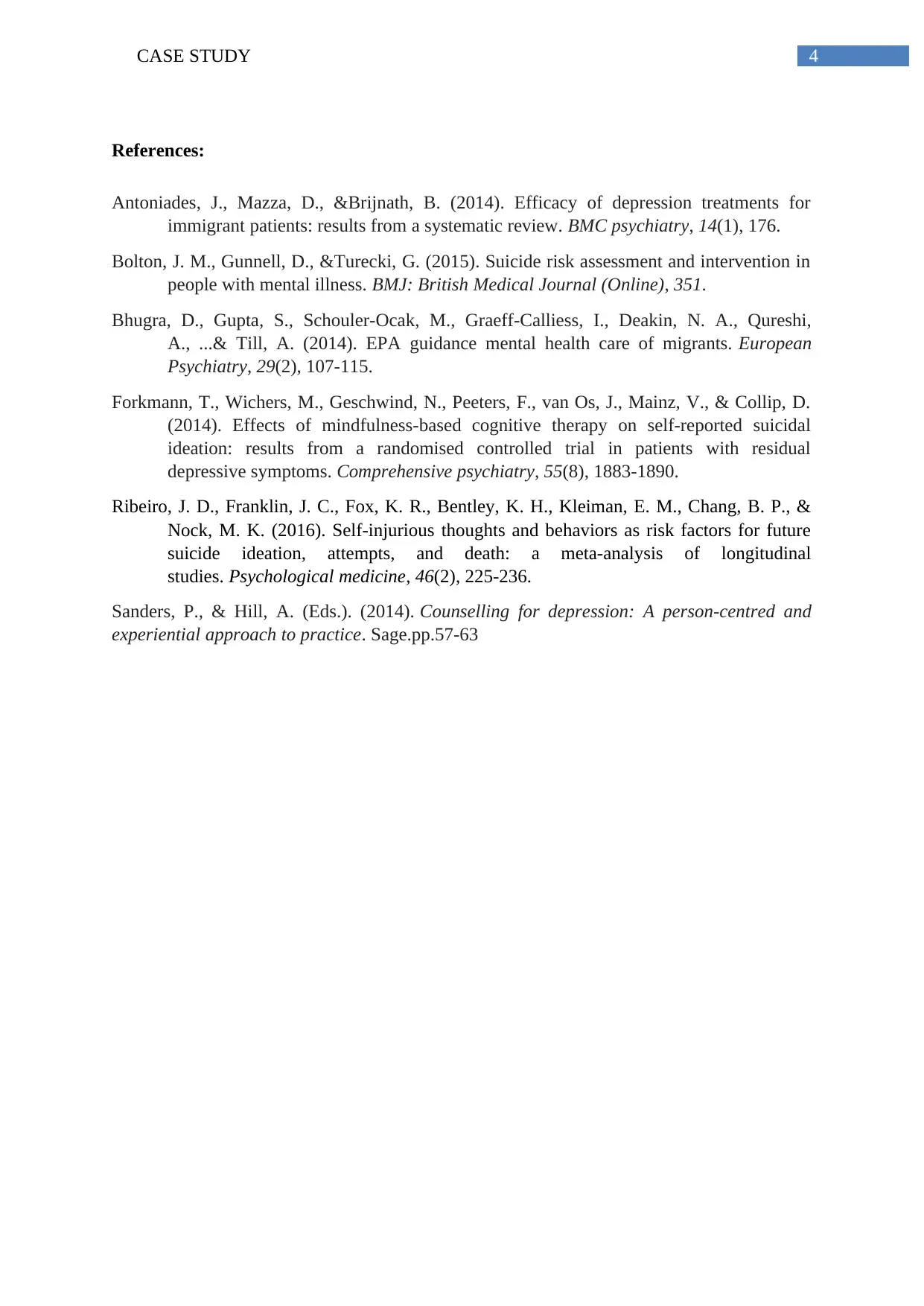University Case Study: Mental Health Risk and Intervention Analysis
VerifiedAdded on 2023/06/04
|5
|996
|348
Case Study
AI Summary
This assignment presents a comprehensive case study analysis focusing on mental health concerns. The student identifies key risk factors, such as suicidal ideation and potential for major depressive disorder, supported by relevant literature. The analysis includes proposed interventions, such as psychotherapy, cognitive behavioral therapy, and family counseling, with detailed rationales for each intervention. The study also addresses ethical considerations, emphasizing the importance of culturally safe interventions for diverse patient populations. The assignment demonstrates an understanding of mental health assessment, intervention strategies, and the importance of evidence-based practice in healthcare settings. References to academic literature support the student's analysis and proposed interventions. The case studies cover topics such as professional issues, ethical considerations, and interventions for immigrants, providing a broad view of healthcare challenges.
1 out of 5










![[object Object]](/_next/static/media/star-bottom.7253800d.svg)